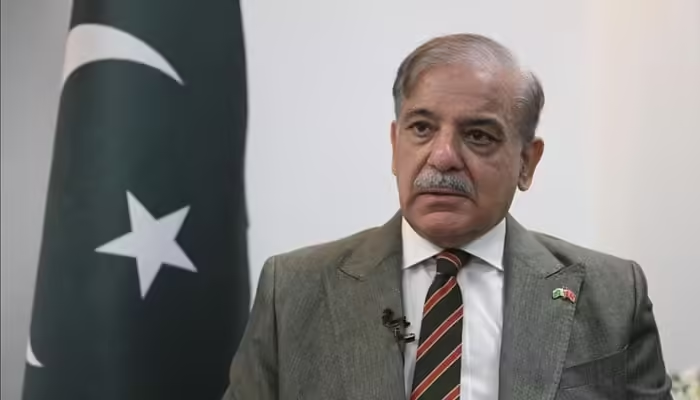In a bold and promising stride towards digital transformation, Pakistan’s Prime Minister Shehbaz Sharif has set an ambitious target to boost the country’s IT exports to $25 billion over the next three years. During a recent meeting in Islamabad, a high-level five-member delegation led by a foreign company’s chairman discussed growth initiatives with Prime Minister Sharif, the Minister of State for IT Shaza Fatima, Member of National Assembly Ali Parvez Malik, and Prime Minister’s Coordinator Rana Ehsan Afzal. The government aims to strengthen the telecom sector as a critical component in achieving this ambitious goal, with 5G and rural connectivity high on the priority list.
Government’s Vision: Telecommunication as a Growth Catalyst
The government’s emphasis on bolstering IT exports comes with a multi-faceted plan to enhance Pakistan’s telecommunications infrastructure, which is set to play a crucial role in achieving economic stability and growth. Prime Minister Shehbaz Sharif emphasized that efforts are being made to bring modern technology to every corner of the country, including remote and underserved areas. “Our commitment to a Digital Pakistan is steadfast, and the telecom sector will lead the way,” he stated.
Prime Minister Sharif noted that expanding internet access, even in remote regions, is essential for connecting the nation and ensuring that the benefits of digitalization reach all citizens. By focusing on telecom infrastructure, the government aims to uplift the rural economy and create more job opportunities. Additionally, providing faster mobile and internet services aligns with Pakistan’s broader economic goals, making connectivity the backbone of national growth.
Introduction of 5G Internet Services
A key highlight from the meeting was the government’s intent to introduce 5G internet services in Pakistan. The advent of 5G technology represents a significant leap forward, not only enhancing internet speed but also supporting a broad range of applications in industries such as healthcare, agriculture, finance, and e-commerce. With 5G, Pakistan will be better equipped to integrate cutting-edge technologies, such as artificial intelligence (AI) and the Internet of Things (IoT), into its digital landscape. Prime Minister Sharif expressed optimism that 5G will help transform Pakistan into a cashless and digitally inclusive economy, bringing the country in line with global standards of connectivity and technological advancement.
This focus on 5G development is part of Pakistan’s “Digital Pakistan” vision, a strategy intended to transform Pakistan into a leading digital economy. By prioritizing the launch of 5G, the government seeks to attract foreign investment, foster innovation, and create a more favorable business environment for tech startups. According to the Prime Minister, “5G will not only enhance connectivity but also serve as a foundation for building a digital economy that is resilient, adaptable, and sustainable.”
Boosting IT Exports: A $25 Billion Ambition
With a target of reaching $25 billion in IT exports by 2026, Pakistan’s IT sector is poised to become a major driver of economic growth. The government’s strategy focuses on improving the regulatory framework, encouraging private-sector innovation, and collaborating with international tech firms to build the nation’s IT capabilities. Prime Minister Shehbaz Sharif highlighted that the $25 billion target reflects a collective aspiration to make Pakistan a competitive player in the global digital economy.
This ambitious export goal relies on fostering partnerships with foreign investors, as reflected in the delegation’s visit. The foreign delegates praised Pakistan’s recent strides toward economic stability, acknowledging the country as an attractive destination for investment in the IT and telecom sectors. They also expressed confidence that, with continued government support, Pakistan could become a regional leader in technology and digital services.
The Role of Telecom in a Cashless Economy
Prime Minister Sharif also emphasized the importance of a robust telecom sector in transitioning Pakistan towards a cashless, digital economy. With the rapid increase in mobile usage across the nation, there is immense potential for expanding digital payment solutions, enhancing financial inclusion, and reducing dependency on cash transactions. As more Pakistanis adopt mobile banking and digital wallets, the government aims to streamline payment processes, facilitate transactions, and increase the efficiency of financial services.
Moreover, this shift aligns with the government’s broader agenda to digitize public services, create a transparent governance framework, and combat corruption through increased transparency. A digital and cashless economy can contribute to national prosperity by improving resource allocation, streamlining taxation, and reducing leakage in public spending.
Foreign Delegation’s Positive Outlook
The foreign delegation commended Pakistan’s recent economic achievements and expressed strong interest in further collaboration. They acknowledged that the country’s strategic location, growing tech talent pool, and government incentives make it an appealing hub for technology investments. The delegation remarked that Pakistan’s commitment to developing its IT and telecom sectors has not gone unnoticed globally, and foreign companies are now viewing Pakistan as a valuable destination for technology and infrastructure projects.
In addition, the government’s proactive approach to stabilizing the economy and its support for the digital sector have built confidence among investors. With supportive policies, Pakistan can continue to attract international stakeholders who seek to invest in the IT and telecom sectors, further boosting the nation’s economic prospects.
Future Prospects: A Digitally Empowered Pakistan
Pakistan’s pursuit of a $25 billion IT export target, bolstered by advancements in telecommunications and the impending launch of 5G, marks a pivotal moment in the country’s economic trajectory. The government’s Digital Pakistan vision, aimed at creating a technology-driven, cashless economy, reflects the leadership’s commitment to fostering innovation, inclusivity, and growth. With continued dedication, Pakistan can emerge as a formidable player in the global digital arena.
As the nation advances towards digitalization, the role of IT and telecommunications will remain critical in achieving sustainable development. The upcoming years present a promising outlook for Pakistan, as the combined efforts of the government and private sector strive to secure a prosperous, digitally connected future.



